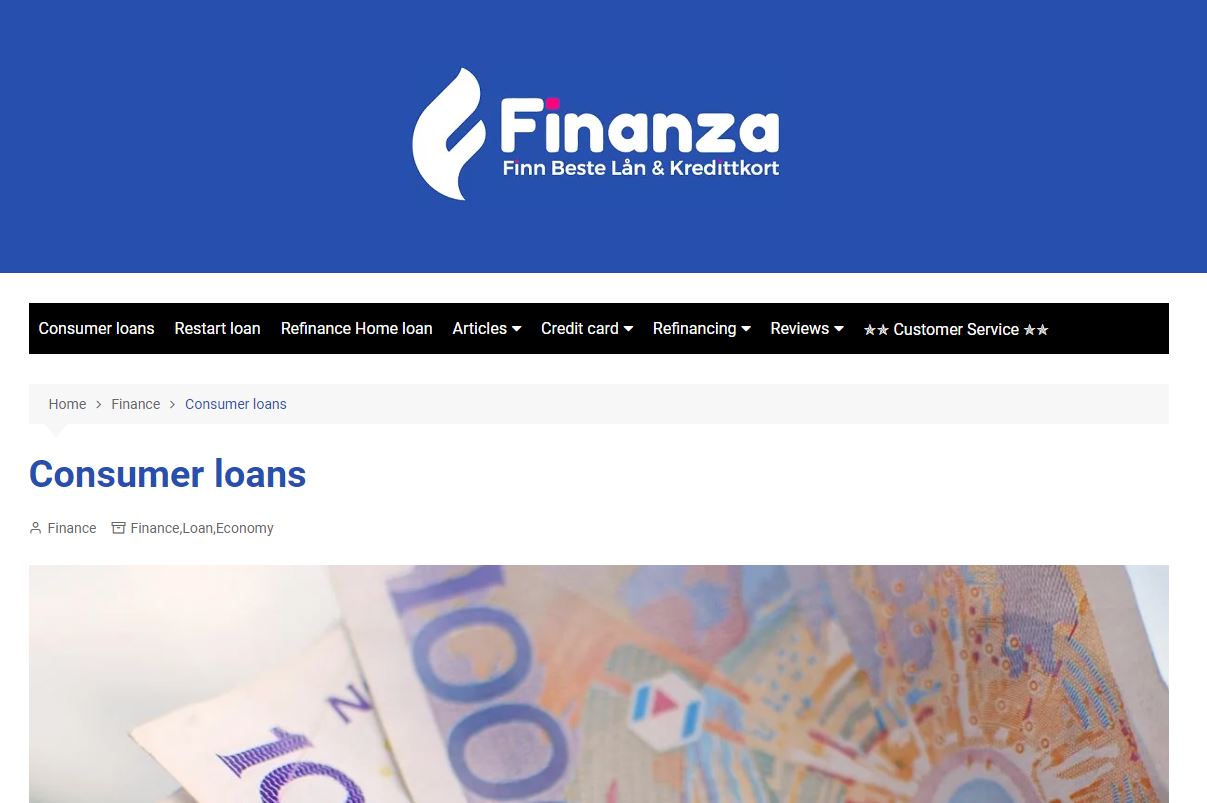If you are thinking about applying for a personal loan, there is information that you should know about before applying. These things include your credit history, your debt-to-income ratio, and how much interest you can expect to pay. For further information we recommend that you read Forbrukslån – Søk Hos 25 Banker Med Kun 1 Søknad ~ Finanza.
Credit score requirements
Personal loans are a great way to consolidate revolving debt, but you must consider your credit score before applying. The higher your score, the better.
A credit score is a number that represents your overall debt load, and is calculated as a percentage of your available credit. It also helps lenders determine your financial worthiness. Some lenders require a higher score than others. If you have a bad credit score, you may be forced to put up collateral or qualify for a lower loan amount.
A high credit score also indicates that you’re a responsible borrower. This can help you qualify for a good interest rate and larger loan amount.
Other important factors include your employment status and social security number. You should compare offers from different lenders and choose the best option for your needs.
Debt-to-income ratio
When you apply for a personal loan, one of the factors that lenders consider is your debt-to-income ratio. This is a good way to determine whether you are able to pay your debts on time, and how much you can borrow.
Debt-to-income ratios range from as high as 50% to as low as 35%, depending on a number of factors. A lower ratio is better for you, and may help you get approved for a loan. However, if your ratio is too high, you may struggle to make your payments on time, or you may have trouble getting new loans.
Your DTI is calculated by subtracting the monthly amount of your total debt payments from your monthly income. For example, if you make $2600 a month, your debt-to-income ratio would be 47%.
Interest rate
There are many factors that go into determining an interest rate. For example, your credit history will play a major role. You can also get better rates if you have collateral.
If you are looking to borrow money, it’s a good idea to shop around for the best rates. Your credit score will influence whether or not you’ll qualify for the loan, so be sure to look for the best rate available.
The interest rate for a personal loan will vary, depending on the lender and the amount of the loan. Typically, lenders offer an interest rate that is higher than you would expect for a typical credit card.
A high credit score will put you in a better position to receive the best rates. But, if you have a bad credit score, you may not be able to make the required monthly payments.
Unsecured loans
Unsecured personal loans are a type of financial product that you can get from a variety of lenders. They can be a great way to manage large purchases and expenses without having to risk collateral. However, they also have some drawbacks. The main drawback is that they are typically less secure than secured loans. This means that you can’t expect the lender to protect you if you default.
If you have a poor credit history, it’s possible you won’t be able to get an unsecured loan. But you can take steps to improve your credit and then get approved for one. A good first step is to check your credit report. You can do this for free by going to LendingTree. Once you have access to your credit score, you can discuss your options with a loan specialist.
Another way to help boost your chances of getting an unsecured loan is to obtain a cosigner. If you have a family member or friend who has good credit, you can ask them to be your cosigner. This will help you qualify for the loan and get a better rate.
In addition to obtaining a cosigner, you may be able to find a lender who offers a lower interest rate. Some lenders have minimum credit requirements, so it’s a good idea to shop around for the best loan.
It’s important to remember that your credit is just as important as your income. While lenders evaluate your creditworthiness based on your income and debt-to-income ratio, they’ll also look at your history of payments. Your repayment history is a key factor in determining your potential APR. Defaulters will have a very negative effect on your credit score. And if you fail to make payments, you can be sent to a collection agency. Getting a personal loan is a good idea, but you’ll want to be sure you can make all of the required payments.
If you’re looking to make a home improvement project or consolidate credit card debt, a personal loan may be the right solution. Unsecured loans can be used for a wide range of purposes, from paying for a home renovation to paying off medical bills. Most loans have fixed interest rates, though some loans have variable rates. Because of the uncertainty surrounding interest rates, you’ll want to shop around for a loan that has a low rate.
When it comes to unsecured personal loans, the biggest determining factor is your credit score. While there are some exceptions, you’re more likely to be approved for an unsecured loan if you have a high credit rating. Generally, you’ll need to have a score of at least 600, but some banks may require a higher score.
Even if you have a low credit score, it’s a good idea to work on improving your credit before you apply for a loan. Taking the time to pay off old credit cards or other outstanding balances can make a big difference in your credit. Also, try to work with your creditors to find a way to decrease your debt-to-income ratio.
